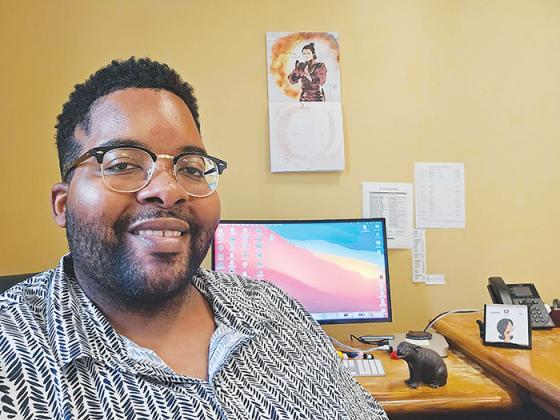Part of being a journalist means I’m constantly thrown into different settings. While I don’t get out as much now that I’m chained to the editor’s desk, there was a time when I could end the workweek having attended a five-hour government meeting, walked around the perimeter of a crime scene, watched a manatee get reintroduced into the wild or attended an awards banquet.
This week, I found myself back at school, somewhere I never thought I’d visit so often after graduating in 2002. Four sixth graders at Browning-Pearce were so impressive in their coding abilities that they won a Zoom call involving their classmates and a member of the New England Patriots. The four students coded a sports game for the Unruly Splats program as part of the elementary school’s science, technology, engineering and mathematics curricula.
Putnam County School District STEM officials pointed out how students have so much fun with interactive projects that they don’t realize they’re learning. That revelation initially made me jealous of those students and their digital wonderland. My classmates and I didn’t have such gadgets when I was in the sixth grade. Then I realized I had other fun ways that made learning not feel like learning. Many ways, actually, and not just in the sixth grade.
My favorite class I’ve ever taken was Jake Seymour’s 10th grade English II honors class, which transformed what was merely a love of writing into a passion. A fan of theater, Seymour incorporated theatrics into what could have been mundane assignments about novels and plays that, despite being deemed “classic,” did not interest most of us.
When Seymour placed copies of Harper Lee’s “To Kill a Mockingbird” on our desks, none of us were overjoyed. It was just another book we had to read for class. Seymour, however, had a way of transferring his enthusiasm about the book to us and encouraged us to participate during class discussions so we knew our opinions mattered.
Our reward for getting through “Tequila Mockingbird” – don’t judge us; we were 15 and thought the term was the height of literary humor – was an assignment that was worth a decent chunk of our grade for that nine weeks. Instead of writing essays to recap what we’d been reading, he gave us different assignment options, the most popular of which was cooking a Southern dish as an homage to the novel’s Alabama setting. Eating what felt like Sunday dinner during first period on a random Tuesday was much more memorable than writing a standard five-paragraph essay. I surely had more fun eating the 8 a.m. lunch buffet than my classmates had listening to the terrible poem I chose to write as my assignment.
Later that school year, Seymour presented us with William Shakespeare’s “Julius Caesar.” For someone who loved reading as much as I did, I never cared much for Shakespeare. All of the excerpts of his works I’d heard up until that point sounded like old-timey gibberish that was only interesting when it was modernized in the 1996 film “Romeo + Juliet.”
Seymour must have known most of us felt that way because instead of us simply reading the play, we became the play. He split us into two groups, both of which had to perform the scene where Caesar meets his knife-happy end. To prepare for our production, we learned how to fashion bedsheets into togas, a skill I would put to use in college a few years later.
Rather than merely imply we child actors bathed our hands in Caesar’s blood like his murderers did in the play, we made fake blood using tempera paint. It was the perfect excuse for me to get rid of the big bottle of red paint that had been collecting dust in my parents’ house for years.
During the 1999-2000 school year, our class designed our ideal bomb shelters and came up with what we’d want to put inside them after reading the nuclear war-themed “Alas, Babylon” by Pat Frank. Pro tip: you will get points deducted if you include canned food but no can opener.
One day we walked into class to find overturned desks and papers littering the floor as part of Anarchy Day, his way of better explaining anarchy and its presence in “Antigone” by Sophocles. Seymour showed true brilliance by choosing the 50-minute day and not one of the 100-minute block scheduling days to indulge our anarchistic tendencies.
I had a great teacher with novel ideas – see what I did there? – to get me excited about school assignments. He was one of many teachers who used accouterment like poetry T-shirts, live snakes, a viewing of “Last of the Mohicans” and voting people out of the class in the style of “Survivor” to bring joy to their young charges.
Thank you, educators, for going the extra 5 miles to make learning feel like not learning. And thank you, Jake Seymour, for 8 a.m. Sunday dinner on Tuesday to go with my Tequila Mockingbird.
Brandon D. Oliver is the editor of the Palatka Daily News. He can be reached at boliver@palatkadailynews.com

